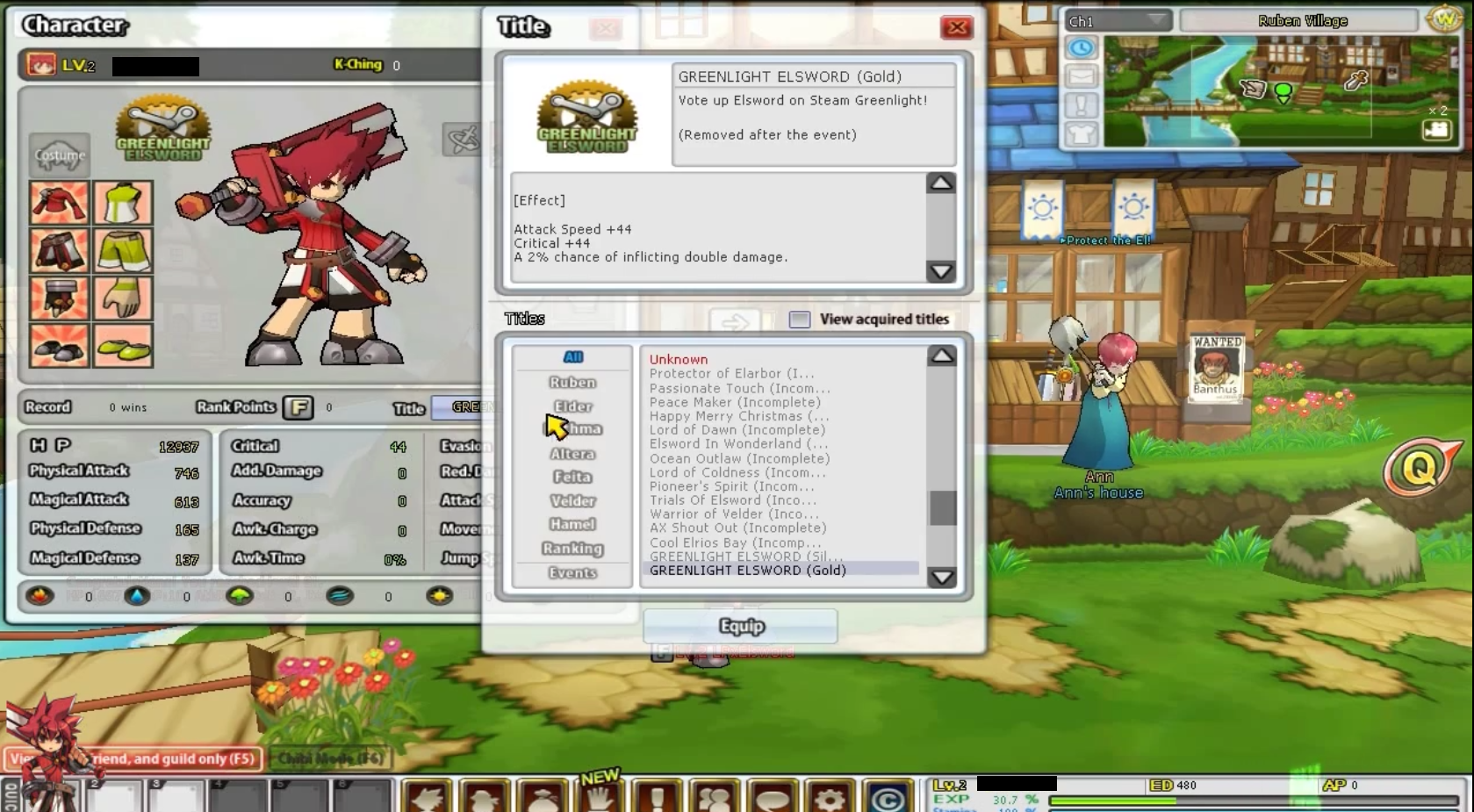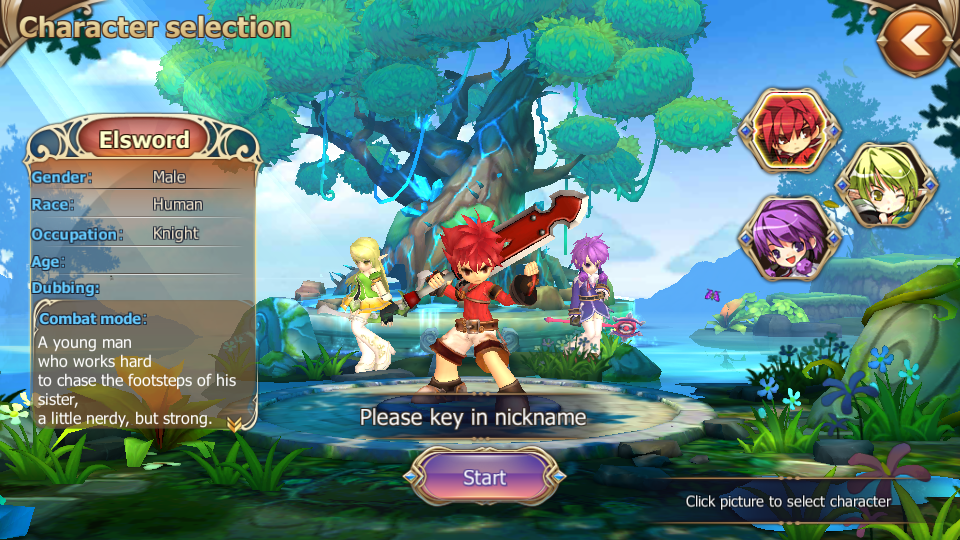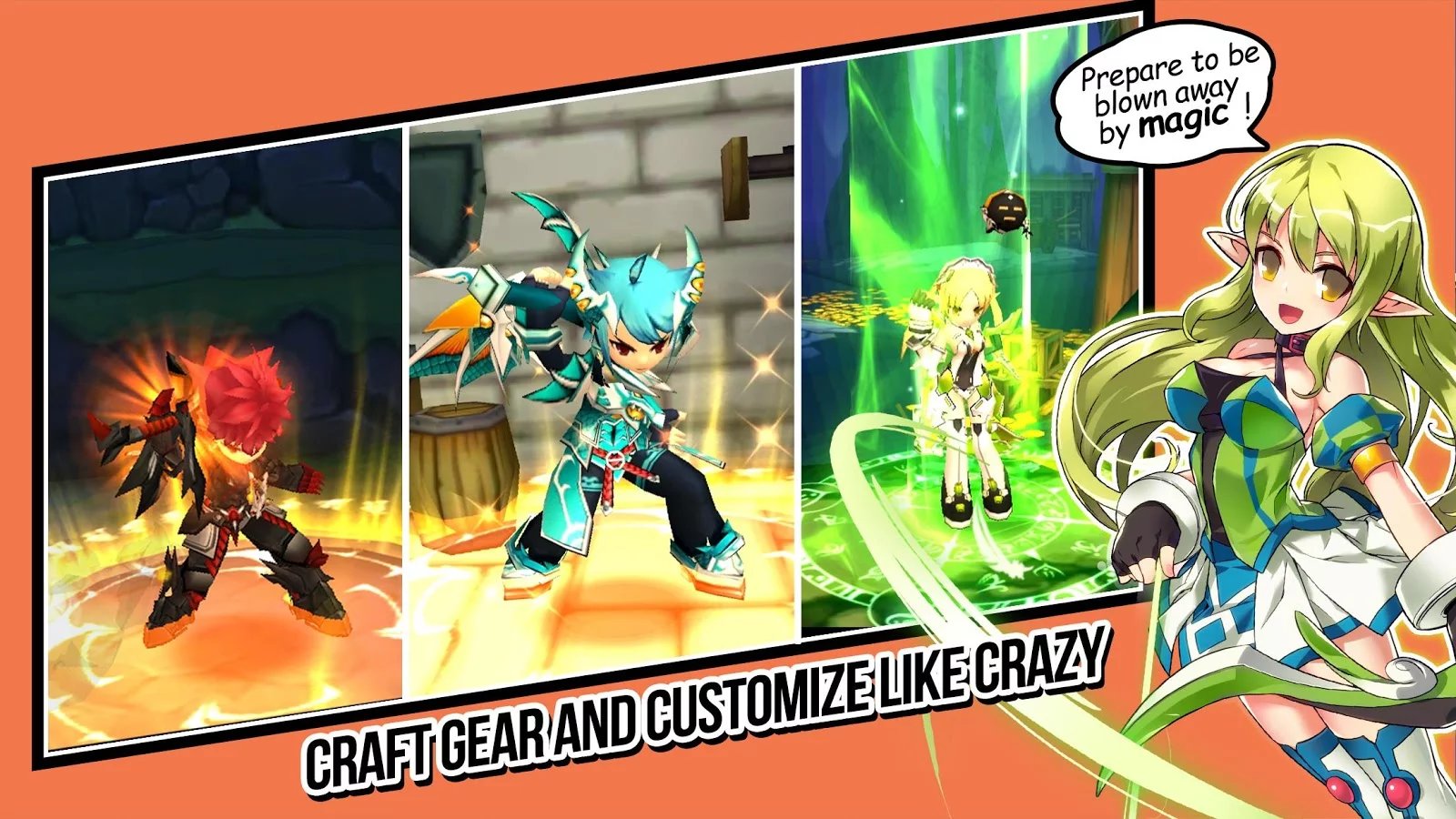Elsword is a 2.5D action MMORPG that was released by KOG Studios in Korea back in 2007. Since then, it has been slowly releasing localized clients worldwide, with the latest being the Philippines server in 2013. Now KOG Studios has released a new game, Elsword: Evolution, for mobile devices. However, the two games share very little beyond their namesake. How so? Read on to find out!
Elsword: Evolution is not an MMORPG
Unlike Elsword, Elsword: Evolution is not an MMORPG. Instead, the game is a mobile PvE RPG game. This means that players will spend most of their time in a single player campaign. In it they will be given various goals such as time limits, defeat the boss, or other similar beat ’em up style challenges.
This also means a difference in gameplay style. Instead of a single world connected by portals and other such methods of moving around, Elsword: Evolution features a world map where players select which stage to play. They will then progress through stages in which they must defeat all onscreen enemies before moving on to the next area.
It’s a fun beat ’em up RPG, but it’s certainly not the MMORPG players might be expecting from an Elsword title.
You cannot transfer your Elsword characters or account information to Elsword: Evolution
Since the core gameplay mechanics are different between the PC and mobile games, player characters and account information cannot be shared between the two. That means all the time and money you poured into Elsword is worthless in Elsword: Evolution. This is certainly something players will want to consider before playing this game.
The reason is quite simple, really. Elsword is an MMORPG while Elsword: Evolution is a mobile RPG. As such, the two games do not share any common features. Transferring a character is thereby impossible, since there would be no way to translate one player character into the other game’s format.
The UI has been completely changed
In Elsword (above) your UI looks pretty standard for a Korean MMORPG. You have your 2D map window, your stats, titles, skills, and so on. While it can be a bit crowded and confusing at times, it is the depth that status screens like this have that helps to customize your character the way you want.
Since Elsword: Evolution is not an MMO, the inspiration it took from the original Elsword is barely recognizable. Developed as a mobile game first, Elsword: Evolution comes off as simplistic. Your skills, equipment, and so on are all found in convenient menu buttons whenever you return to the “mainland”. Also, since the game uses a stage-by-stage system instead of a portal-based world the game doesn’t have any area maps.
Elsword: Evolution‘s skills and animations are significantly less flashy than Elsword

Spells and skills look somewhat bland in Elsword: Evolution. While Elsword isn’t exactly the flashiest game on the market either, it is clear that every animation in the mobile title has taken graphical limitations into account. Even Elsword‘s characteristic manga-panel special skills have been replaced with a wide range of regular skills aside from the odd closeup on your character.
Keep in mind, the game doesn’t look bad at all. It’s actually quite impressive for a game running on a mobile phone. Just don’t expect anything too epic.
Elsword: Evolution can literally play itself
Players in Elsword: Evolution can opt for automatic or semi-automatic controls for those who despise the grinding nature of MMORPGs or simply hate mobile controls. While this does bring into question why anyone would bother playing a game that is literally playing itself, it does make the game a lot easier on the thumbs seeing as touch screens are hardly a place for an action game. There are also few disadvantages to running the game on full-auto either, since it is mostly your skill build and equipment that will determine your chances of victory.
Semi-auto mode serves as an in-between mode that gives the player control solely over the character’s skills. This mode is best for stages that don’t have alternate paths or treasure chests sitting on floating platforms. However, manual mode is the only one that will let you get the full experience of the game — as well as any secrets a stage hides.
There are no PVP modes in Elsword: Evolution
In Elsword (above) there were PvP modes that players could partake in to fight one another in various modes of combat. This is a common feature in MMORPGs, since it allows players to test out their final builds and equipment on other players to see not only who deals the most damage, but also who has the most skill.
Elsword: Evolution does not have a PvP mode. Instead, the game offers a party system that lets players play co-op “raid” versions of the story mode missions. To join a party, players have to enter the Party Square and request to join one. Otherwise, they can add friends and invite them through the “Friends” option instead. Raid missions can only be played starting at level 25.
There are currently only three playable characters in Elsword: Evolution at this time
As of the time of this article’s publication, only three playable characters are available in Elsword: Evolution. These characters include: Elsword, the Knight; Rena, the Ranger; and Aisha, the Magician. Each character has their own distinct play style, as well as story and skills. This also means that they have their own weaknesses as well.
Elsword on the other hand has eight characters currently available in the Korean client.
Pay to Win vs Free to Start
The free-to-play MMORPG nature of Elsword meant that many late game items could be attained through the cash shop. While most of those items were readily available in game for free, the cash shop meant getting these special items faster. This is commonly known as “pay to win” in the MMORPG world, as it gives an unfair advantage to those willing the shell out cash for virtual items.
As a mobile RPG, Elsword: Evolution takes on a freemium stance similar to most other mobile games. While the game can be played from start to finish without paying a penny, customization items and higher level gear are almost exclusively for paying players only. Real world money can also be used to replenish energy points that otherwise take 2 minutes to recharge… each point.
That’s all folks!
Elsword and Elsword: Evolution are very different — but both very entertaining – manga-style video games. While both feature somewhat similar visuals and control styles, the heart of each game is very different. If you’re looking for a complex MMORPG, then Elsword on PC is probably the game you’ll want to go with. If you’re instead looking for a simple, slightly more restricted, beat ’em up solo game then you should download Elsword: Evolution.
If you’re just a fan of the Elsword universe in general, then Elsword: Evolution will serve as a great on-the-go companion to fulfill your Elsword cravings while away from your PC. Just remember that you will need to be connected to a Wi-Fi hotspot or have mobile data to play Elsword: Evolution.
If you’d like to download Elsword: Evolution for yourself, you can find it on the Google Play Store or the iPhone App Store.

















Published: May 17, 2016 08:30 am